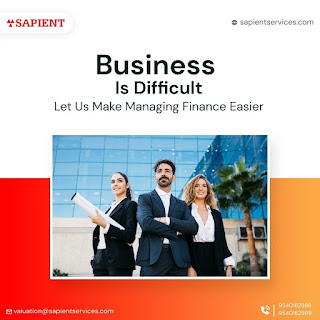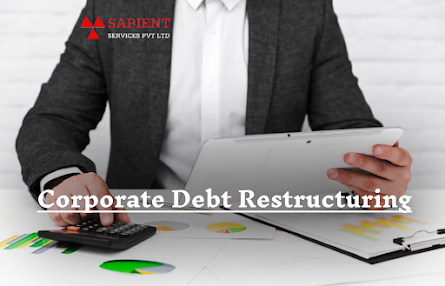Techno economic viability is a key idea that
integrates technology with economics to assess a project or endeavor's
viability and profitability. For directing innovation and fostering sustainable
development, it is crucial. In this blog article, we'll talk about the
relevance of TEV while examining its impacts on various industries and its
contribution to long-term economic growth.
What is the goal of Techno Economic Viability?
To determine whether a technology or project is both
technically and commercially feasible, techno-economic viability analyses are
carried out. They require carrying out in-depth analyses, calculations, and
predictions to understand the potential risks and advantages associated with
bringing a specific technology into use or starting a specific project.
In the context of technological development, it is crucial
to ascertain whether a technology has the potential to be both commercially
viable and competitive. It helps in determining the costs associated with the
development, manufacture, and commercialization of a technology and assesses
whether the predicted gains and profits outweigh the expenses.
When determining the viability and financial efficiency of
renewable energy projects, TEV studies, for example, are crucial. These studies
look at the price of the equipment, how it is installed, used, and maintained,
as well as the expected energy output and potential revenue from selling
electricity or participating in incentive programmes.
It encourages both technological innovation and economic
progress.
Technological advancements have fundamentally changed how we
communicate, live, and work. But for a technology to have a long-lasting
effect, it must be profitable. TEV ensures that ideas are practical from a
technical and financial standpoint. By doing thorough cost-benefit analyses,
businesses and politicians may adopt new technologies in a way that fosters
economic growth.
Supporting sustainable development and hastening the energy
transition
The advancement of sustainable development depends on it. As
the world struggles with serious concerns including climate change, resource
scarcity, and environmental degradation, it is imperative to implement
technology that reduces harmful impacts. The TEV project aided in the discovery
and evaluation of environmentally sustainable alternatives. By placing a high
value on sustainable solutions, we can strike a balance between economic growth
and environmental preservation.
Accelerating the transition to renewable energy sources in
the energy sector depends on their technological and economic viability.
Renewable energy technologies have a lot of potential, but before they can
successfully be integrated into the current energy system, they must undergo a
thorough review of their economic viability. Techno-economic studies assist us
in identifying opportunities for investment and development by contrasting the
costs of producing energy from renewable sources with those from conventional
sources. This tactic facilitates the adoption of renewable energy more quickly,
reducing carbon emissions and the effects of climate change.
Infrastructure Improvement and Development
For economies and civilizations to advance, infrastructure
development is crucial. The sustainability and soundness of infrastructure
projects are ensured by TEV. By thoroughly analysing the long-term economic
viability of infrastructure projects, policymakers can decrease the chance of
budget overruns and improve project outcomes. This approach encourages resource
efficiency and growth that is fair to all.
Promotion of enterprise and innovation
TEV encourages innovation and entrepreneurship. Strong business
models are essential for startups and entrepreneurs to attract investors and
raise money. If they can show the potential profitability of their projects by
an in-depth techno-economic evaluation, they will have a better chance of
succeeding. Additionally, if entrepreneurs start off by considering economic
viability, they are more likely to develop unique solutions that successfully
address market needs.
Using resources as efficiently as possible
When resources are scarce, efficient resource allocation is
crucial. A mechanism for setting investment priorities and effectively
allocating resources is provided by the TEV research. By assessing the costs
and benefits of various options, decision-makers may make informed decisions
and maximise resource allocation. This approach boosts output, cuts waste, and
directs resources to projects with the greatest potential for beneficial social
and economic effects.
A compass for innovation and sustainable development is techno-economic viability. By assessing the techno economic viability, it helps
decision-makers take well-informed decisions that support sustainable
practises, foster innovation, and promote economic growth. Everyone may build a
more prosperous and long-lasting future by using it as a guiding principle.
In relation to Sapient Services
Sapient Services purchased M/s Malhotra Associates in April
1988. The organization's initial focus areas included third-party inspection,
risk assessment, damage assessment, plant and machinery appraisal, and
Chartered Engineer accreditation. Chartered engineers, risk assessors,
insurance surveyors, and damage adjusters are among the employees of Sapient
Services Pvt. Ltd., a government-registered valuer with offices in Mumbai. In comparison
to other organisations, it offers better Chartered Engineering Services. Since
its foundation seventeen years ago, the organisation has handled more than
15000 cases, including those involving marine cargo, engineering, fire surveys,
and claims of various sizes.



Comments
Post a Comment